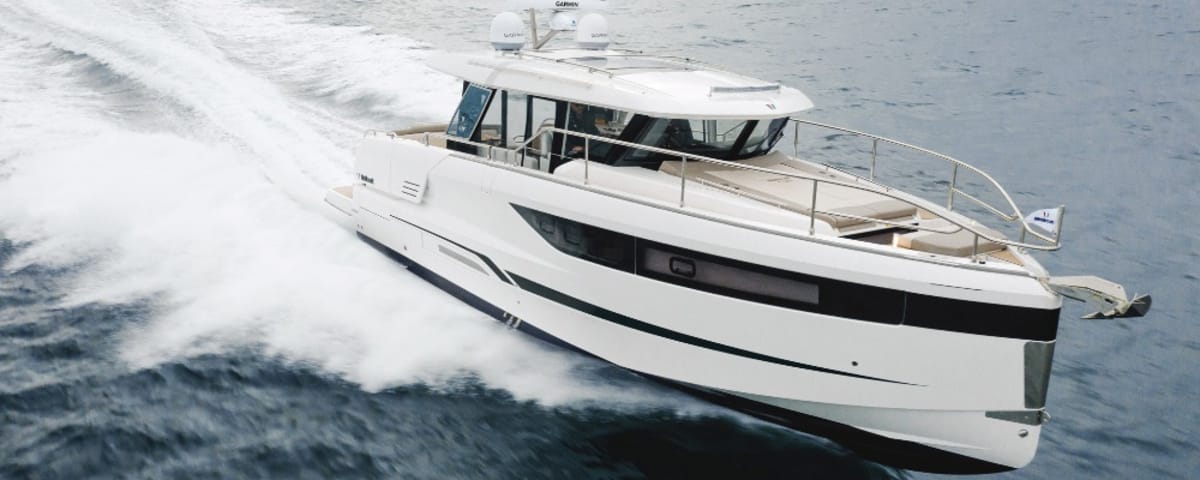The Economics of Maintenance vs. Investing in New Boats
Recent years have witnessed a surge in prices in the nautical world. The rise in raw materials and logistical challenges have propelled the costs of new boats to unprecedented levels. A 35-foot sailboat, once accessible for €150,000, now exceeds €200,000. Motorboats have not escaped this trend, with increases of 20 to 30% on many models. Added to this are delivery times often reaching 18 months. In this context, maintaining an existing boat becomes a sensible alternative.
An annual budget of between 3% and 10% of the boat’s value allows it to be kept in perfect condition. This includes rigging checks, hull work, mechanical maintenance, and other adjustments. For example, between €2,000 and €10,000 is enough to maintain a 10-meter sailboat, well below the cost of a new model. As a bonus, a well-maintained boat retains its value better, offering a 15 to 30% increase at resale compared to a neglected vessel.
Repairing Rather Than Replacing: A Smart Choice
A boat is not just a machine: it’s a companion for adventures, whose wear and tear can be slowed down by regular care. Rather than succumbing to the allure of the new, optimizing what you have is often more prudent. For example, replacing a tired engine can cost up to €20,000, but a thorough overhaul, costing less than €2,000, is often enough to give it many more years of life.
The rigging, a crucial element of any sailboat, also illustrates this logic. Completely renewing the standing rigging of a 35-foot boat costs around €8,000, far from the €200,000 of a new sailboat. These figures demonstrate that renovating and maintaining not only allows you to sail with confidence, but also to preserve a valuable asset.
Maintaining your boat is not just about postponing the purchase of a new one. It’s also a way to save money in the long term. A clean hull, for example, reduces fuel consumption by 10 to 20%, or improves sailing performance. Over a season, these gains amount to hundreds of euros. Furthermore, preventive checks of critical elements avoid costly repairs, such as replacing a mast after dismasting, or an engine damaged by a leak. Investing in regular, even modest, inspections offers a significant return on investment. Every euro spent on preventive maintenance often saves thousands in major repairs.
A Responsible Choice for the Environment
Beyond economic considerations, maintaining your boat is part of an ecological approach. The construction of new boats consumes significant natural resources: aluminum, resins, precious wood, energy… Extending the life of your current boat reduces this impact. By choosing environmentally friendly products for its maintenance and limiting fuel consumption, you actively participate in the preservation of marine ecosystems. Maintaining your boat thus minimizes the ecological footprint while continuing to enjoy the joys of sailing.
A Commitment That Strengthens the Bond with Your Boat
Taking care of your boat is also a matter of the heart. Cleaning the hull, checking the sails, maintaining the winches: these ritual gestures reflect a true complicity with the boat. Each intervention, however modest, prepares the boat for future getaways. Michel, owner of an aging sailboat, testifies with passion: “With each coat of paint or each replaced part, I tell myself that my boat is ready for another decade. It’s a silent pact between him and me.”
These moments spent at the port, tinkering or exchanging with other sailors, are all opportunities to strengthen your expertise and forge links with a community of enthusiasts.
The Wisdom of Thoughtful Maintenance
Maintaining your boat is combining passion and reason. It’s an informed choice in a market where new boats are becoming less and less accessible. It’s a way to preserve natural resources and enhance a unique heritage. And above all, it’s a promise of renewed pleasure, with each trip to sea. Each brushstroke, each check, is a step towards new adventures, in complete serenity.
Enjoyed this post by Thibault Helle? Subscribe for more insights and updates straight from the source.


